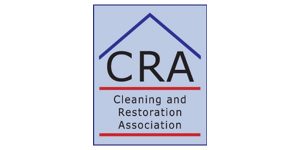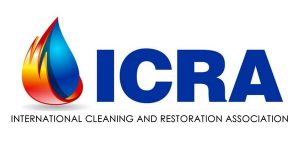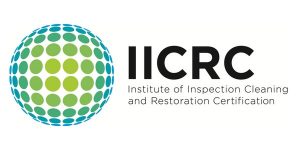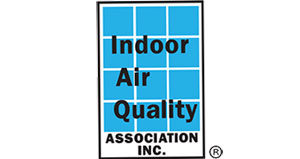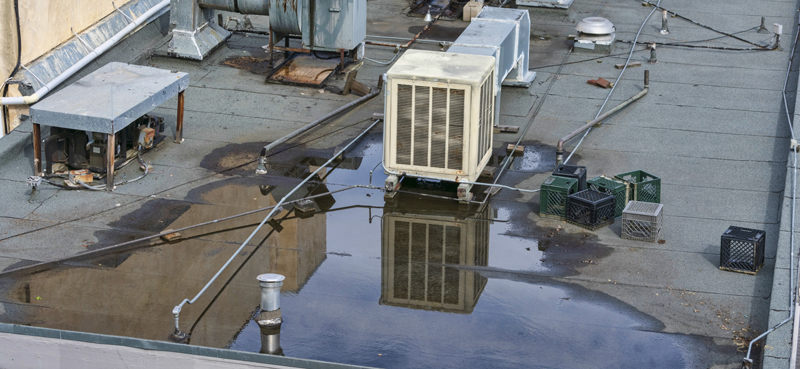
You may be surprised to hear that your air conditioning is a possible cause of water damage. But if you’ve ever seen a window A/C dripping outside on a hot, humid day you can see why.
Just like dew on a cool morning, it’s common for an air conditioner’s coils to be cold enough to condense humidity out of the air. And that needs to be channeled out of your home or business. Worse still, coils can ice-up and then release a lot of water all at once as the unit cycles off and that ice melts.
Any excess dampness quickly leads to mold, and further water damage can progress over time until you have to repair drywall or warped floorboards. In one reported case a central air conditioning unit in an attic caused the ceiling to collapse… because of a simple clogged air filter!
Top 5 Problems to Look Out For
The terms can be a bit confusing but the outside condenser coil gets hot and the inside evaporator coil gets cold, those coil names referring to what the refrigerant is doing as it’s pumped around inside the air conditioner. “Dew” condensing is actually a good thing, reducing humidity and making it even more comfortable indoors. So there’s a condensation pan to catch drips and a drain line to route it outdoors to where it can’t do any harm. But if anything goes wrong you’ll have a leaky A/C and the likelihood of at least minor water damage.
Central Air Conditioners
With central air, problems can remain hidden in utility closets or attics until the damage is severe and expensive to repair. So it’s worth your time to be pro-active and stay on the lookout for problems. There are basically two issues to be aware of: normal condensation not being drained properly and situations that cause the evaporator coil to freeze up.
- Is the drain pan catching all the drips? Or is it out of place? Cracked?
- Is the drain line flowing freely? Blocked? Leaking? Disconnected?
- If there’s a condensate pump, is it working properly?
- Is the air filter clogged? If the airflow is reduced the evaporator gets colder and can freeze up. The same filter is used for central heating, so it should be changed every 3 to 6 months, year-round.
- Is the unit low on refrigerant? That can also cause freezing.
Note: Although rare, there can also be condensation in the ductwork.
A Word About Window Units
Window air conditioners should be leveled so that water flows in the right direction, away from the building. If that’s not the case, or if drain holes or drain lines are blocked, water can damage the window sill or cause damage inside the wall.
What To Do
It’s easy to ignore major appliances until they break down. But don’t. That leads to poor performance and wasted energy. And often to leaks or condensation that causes hidden but progressive water damage that begins within hours.
So keep an eye out and seriously consider an annual A/C inspection and tune-up as preventive maintenance. And at the first visible sign of mold or water damage, call in an expert.
A Word On Insurance
Most insurers will deny claims where reasonable maintenance was neglected, and many policies explicitly exclude mold remediation. But you may be covered if the incident was “sudden and accidental.”



